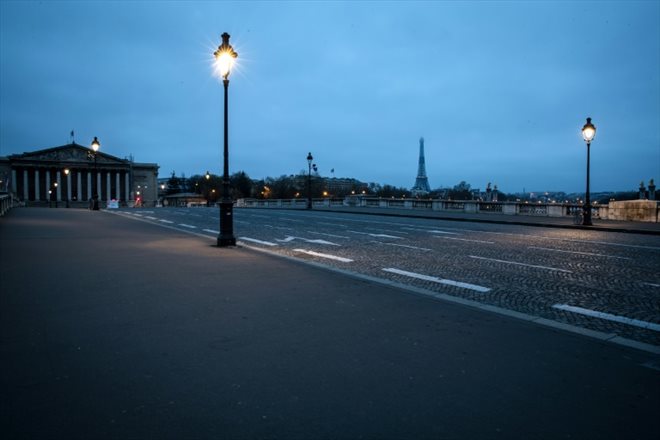The switch to winter time, during the night from Saturday to Sunday, has responded since last winter’s energy crisis to the need to reduce electricity consumption (AFP/Archives/JOEL SAGET)
“Budget” savings, an incentive for sobriety? The change to winter time, during the night from Saturday to Sunday, responds since the energy crisis of last winter to the need to reduce electricity consumption, in particular for local authorities.
The question of the savings actually made in France arose from the seasonal timetable change in 1976, between the first two oil shocks. This involved matching the hours of activity with the hours of sunshine in order to reduce the use of artificial lighting.
This question “is one of the subjects that has been brought back like an autumn chestnut tree for 30 or 40 years, the fact that there would be savings made, but measuring them locally is impossible”, responds a practitioner of field, Jean Revereault, vice-president of the greater Angoulème agglomeration (Charente), responsible for energy issues.

Winter time (AFP/Alain BOMMENEL)
On heating, expenses vary very little depending on winter time: “We don’t wait for the agents to be in the workshops or offices to turn on the heating when they arrive, it is put on before, the winter time doesn’t change much. In schools, it’s the same,” he says.
Regarding lighting, particularly public lighting, the observation is more nuanced.
Especially since it represents 40% of the electricity consumption of communities with 11 million light points throughout the territory, the equivalent of the power of a nuclear reactor, notes Enedis, a subsidiary of EDF which manages the electricity distribution network.
– “Violent crisis” –
For the ecological transition agency Ademe, in terms of lighting, the gains from the time change were around 440 GWh in 2009 at the national level, the last year where the impacts were precisely quantified. In recent years, they have stood at around 351 GWh, or 0.07% of total electricity consumption, according to its estimates.

The switch to winter time, during the night from Saturday to Sunday, has responded since last winter’s energy crisis to the need to reduce electricity consumption, in particular for local authorities (AFP/Archives/JOEL SAGET)
Criticized for the disruption it causes to human or animal behavior, the time change has however come back into favor with the sobriety imposed by the energy crisis which followed Russia’s invasion of Ukraine.
Thus, electricity consumption linked to public lighting fell by 12% between the winter of 2020-21 and that of 2022-23, according to Enedis.
“We suffered a violent energy crisis last winter, gas and electricity suffered an increase of 20 to 40%, which had a very hard impact on our budget,” recalls Thomas Fromentin, president of the agglomeration of Foix-Varilhes in Ariège and elected representative of Foix (9,700 inhabitants).
– “Exceeds” –
This crisis has revealed an “interesting phenomenon”, he observes: nighttime switching off of public lighting, to save energy and protect biodiversity, is now “much better accepted” by populations.
“It was almost funny, our energy union was overwhelmed last winter by the requests from municipalities wanting to modify their public lighting system to allow nighttime switching off,” smiles the elected official.
“Before the energy crisis, in our rural areas, nighttime extinction was sometimes difficult to decide,” adds Mr. Fromentin, “it was often experienced as a step backwards because we have a whole generation who waited for the ‘public lighting of his street, of his farm’.
In total, 22 municipalities out of the 42 in the Foix metropolitan area have decided almost naturally to turn off the street lights in the dead of night. And 162 municipalities in total out of the 326 in the department, specifies Nicolas Trembloy, energy advisor for local authorities.
Nighttime switching off or replacing public lighting with LEDs is nevertheless “much more interesting” in terms of energy savings than just changing the time, notes Mr. Fromentin.
The timetable change, introduced for the first time in France in 1916, was abandoned in 1944, then reintroduced by a decree in September 1975.
Since 1998, it has been harmonized in all countries of the European Union. Under pressure from national public opinion, the European Parliament voted to abolish it in 2019, but it has not been implemented to date.
The original idea came from the American physicist, writer and diplomat Benjamin Franklin who wrote an article in 1784 with the aim of saving… candles.
© 2023 AFP
Did you like this article ? Share it with your friends using the buttons below.




